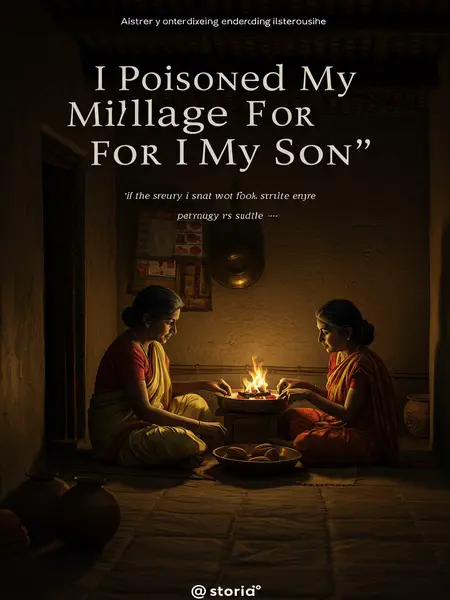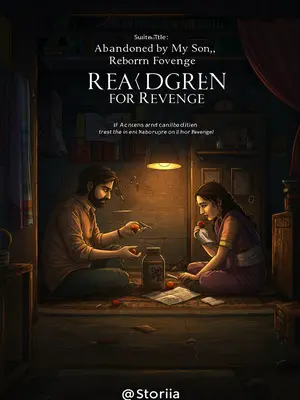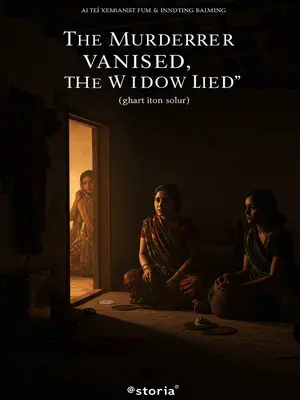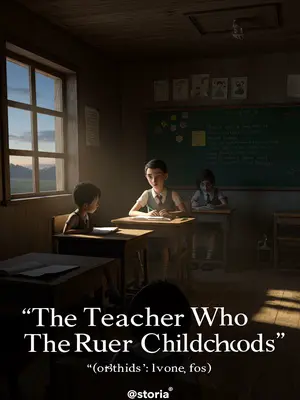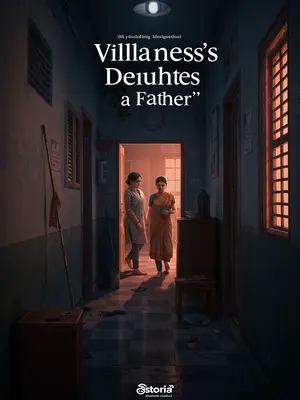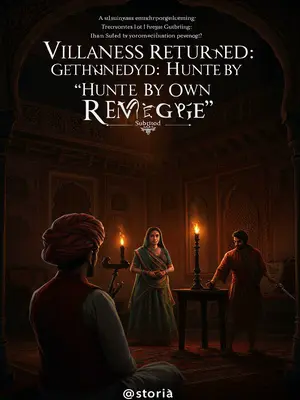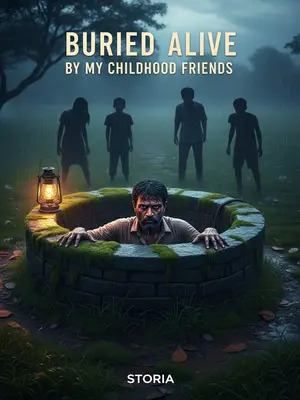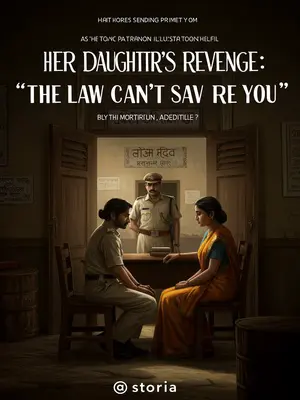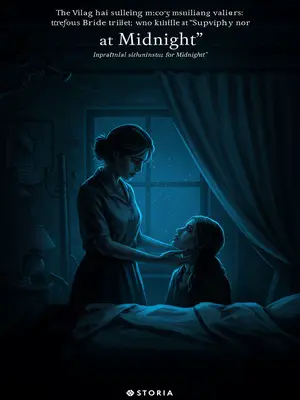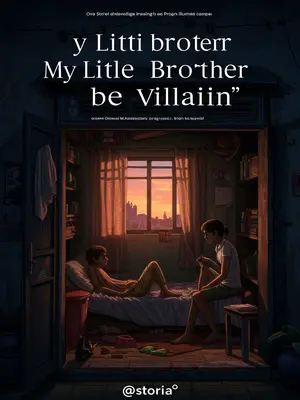Chapter 1: The Weight of Kaveripur
I am the only university student to come from a century-old, impoverished village where the only internet café was a broken-down shop run by a half-blind uncle, and in over a hundred years, no one else had left for higher studies.
Even now, when I think back to those days in Kaveripur, I remember the sun beating down on the cracked mud lanes as children chased after kites with bare, dusty feet. A distant rooster crowed, and somewhere, a WhatsApp ringtone chimed from a neighbour’s house, blending with the village’s morning chaos. My parents, stoic and silent, worked in the fields from sunrise till the last prayer echoed from the distant mosque, their hands forever stained with the red of the earth and the scent of wet paddy. The elders often said, “No one has left this village for studies since your great-grandfather’s time.” And there I was, carrying the weight of their impossible hopes on my shoulders.
My parents developed cancer. To save money for my education, they never once went to the hospital.
Ma used to hide her pain behind her dupatta, biting down on her lips while stirring dal on the chulha. She’d glance at the photo of her wedding day on the wall, as if drawing strength from the past. Baba would cough so hard in the mornings that the neighbours sometimes sent over ginger and honey, but they never stepped foot in a hospital. “Beta, your studies are more important,” they would say, hiding the pain in their eyes, trying to smile while the TV blared some old film in the background, pretending everything was normal. I could hear the pressure cooker’s whistle masking Ma’s groans at night.
My younger brother was beaten so badly he couldn’t get out of bed for three days—just because he touched the piggy bank my mother had painstakingly saved for me.
The piggy bank was one of those bright pink plastic ones, cracked on the side. My little brother, Ravi, had once tried to open it to buy a packet of Parle-G biscuits. When Ma found out, her anger was terrifying—Ma’s bangles clinked angrily as she reached for the stick behind the almirah. She beat him until he cried and begged for forgiveness. Afterward, she pressed warm haldi paste onto his bruises, mumbling prayers under her breath. Still, for three days, Ravi lay in bed, wincing with every movement. Even then, no one said a word about using the money inside. That was for me, for my future.
To help me pay tuition, every family in the village scraped together what little they had, emptying their homes for my sake.
Old Mrs. Fatima brought half a sack of rice. Hari Chacha gave me the last hundred-rupee note he’d tucked away for his daughter’s wedding. Even the children contributed—handfuls of coins, saved from skipping an ice lolly or two. The village held a small gathering under the banyan tree, everyone placing their offering at my feet. “Go, beta. Make us proud,” they said, their voices trembling with a hope that felt too heavy to carry. That night, I lay awake, staring at the tin roof, listening to the sound of crickets and the distant whistle of a passing train.
Everyone said I was the pride of Kaveripur—no one could compare.
“Arrey, one day we’ll see his photo in the newspaper, you see,” the shopkeeper would tell customers, slapping his palm on the wooden counter for emphasis. At every festival, people would point me out to guests. “He’s the one. Going to study in Delhi, imagine!” My name was spoken in the same breath as ancient legends, the living proof that the village could still dream.
Countless nights, I secretly vowed I would never forget what they had done for me.
I wrote their names in my diary: every aunty, every uncle, every child who gave up a sweet for me. I promised myself I’d return one day, bring back gifts, build a library maybe—do something to pay them back. Sometimes, as I studied late at night by the light of a kerosene lamp, I’d press my hand to my heart and swear, “I’ll never forget. Never.”
So, on the day I received my admission letter from Delhi National University, I used all my savings to treat them to a 'final meal before execution'—the traditional antim bhoj, the meal one eats before death.
Neighbours squeezed onto charpais in the courtyard, the plates heavy with steaming rotis and a tangy mango pickle that stung the air. The whole village gathered in the courtyard of our little house, the air filled with the aroma of ghee, masoor dal, and fresh rotis. It was the biggest feast Kaveripur had seen in years. I touched the feet of the elders, as tradition demanded, and made sure every plate was piled high. “This is our antim bhoj,” I joked, trying to lighten the mood, though a heavy silence lingered under the laughter. Even the kids sensed that this was something different—a goodbye in disguise.
Facing their twisted, contorted corpses, I fell at their feet, forehead pressed to the dust, sobbing as the lamplight flickered against the mud walls.
When it was over—when the room had grown cold and silent—I did the only thing I could. I fell to my knees before my parents’ bodies, my forehead pressed into the dusty floor. Three times, as the wailing of distant jackals echoed from the fields, I bowed, letting my tears fall unchecked. My heart pounded so hard I thought it would burst. In that moment, the world outside seemed to vanish, leaving just me and the dead.
